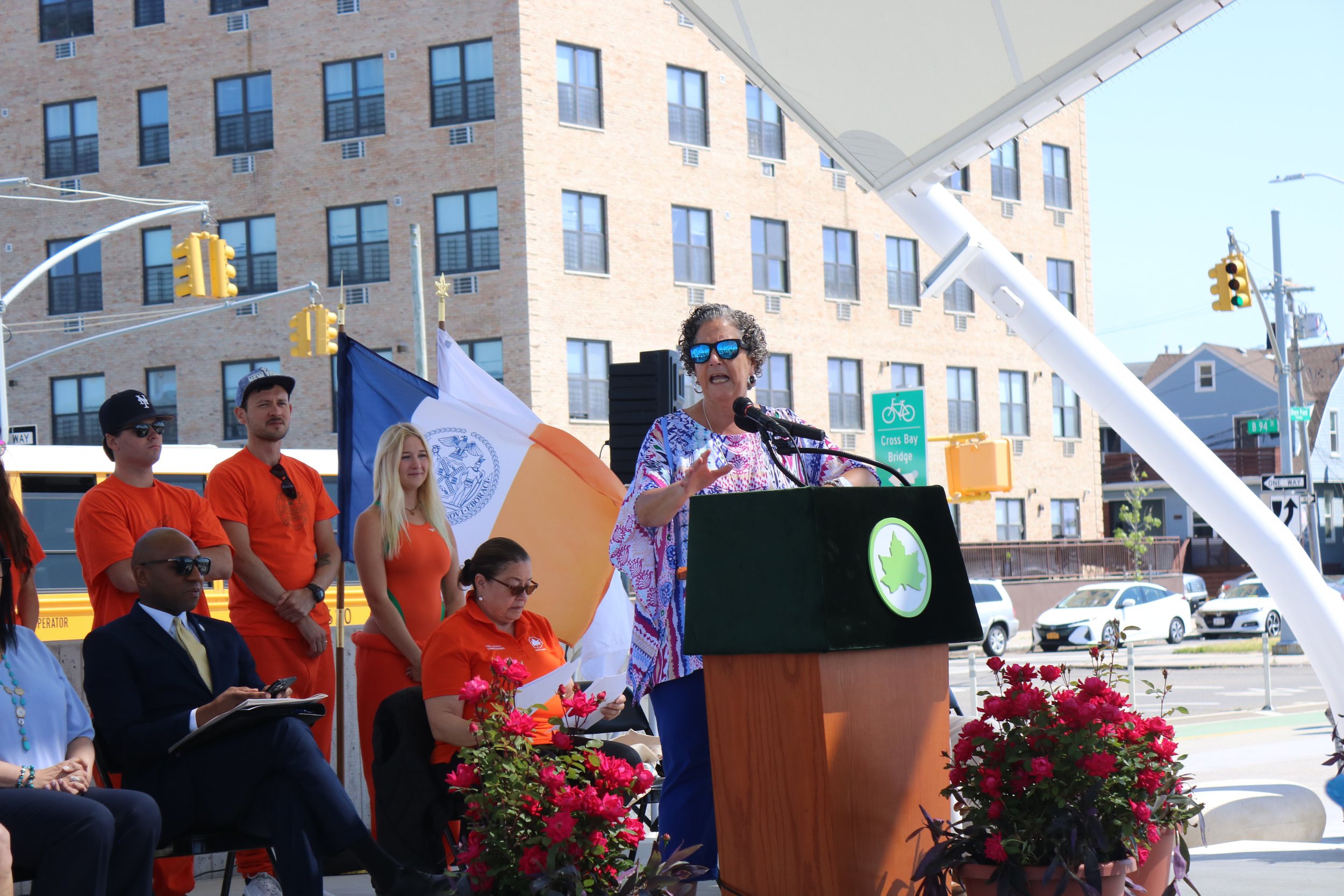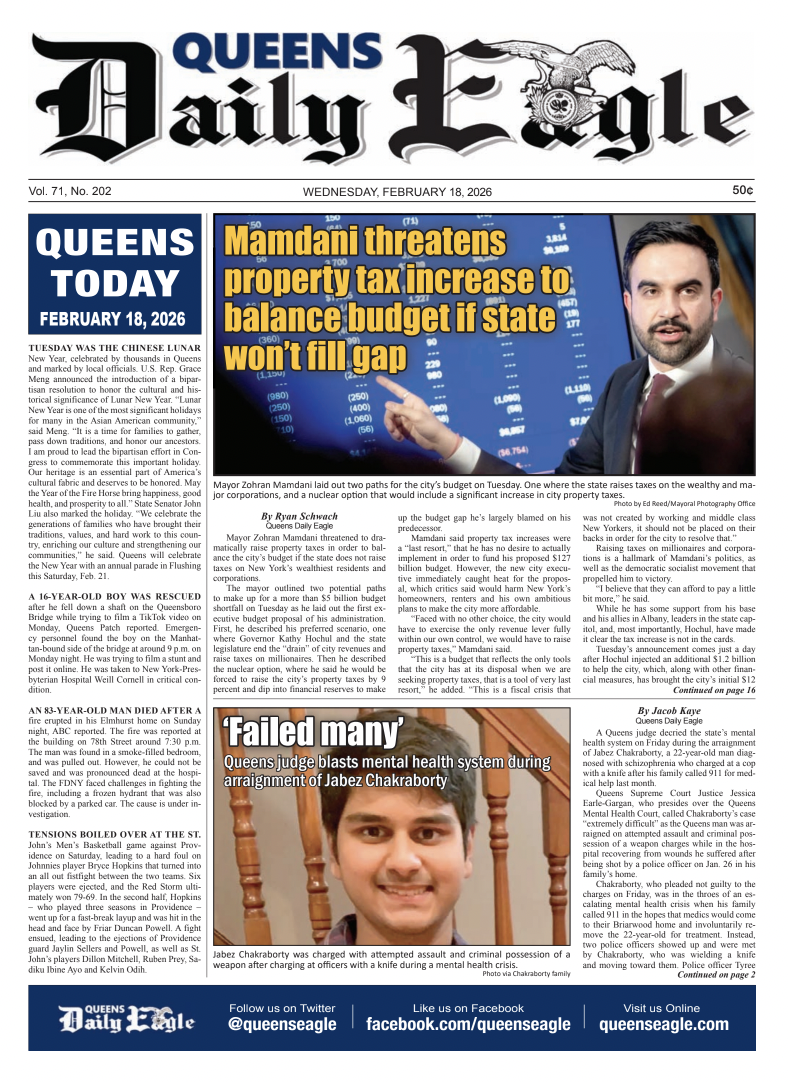No more toll on Cross Bay Bridge for Queens residents
/Queens residents will soon get a 100 rebate in the Cross Bay Bridge in Southeast Queens. Wikimedia Commons photo by Jim Henderson
By Ryan Schwach
Queens residents will no longer need to pay the toll on the Cross Bay Veterans Memorial Bridge in Southeast Queens, a major win for locals in the area who often use the bridge to commute and have long complained about the toll’s cost.
Beginning in 2024, residents of Queens who use E-Zpass will get a 100 percent rebate when crossing the bridge, which connects the Rockaway peninsula to Broad Channel and mainland Queens.
The funding comes through a 2018 program called the Outer Borough Transportation Account – which provided additional resources for outer borough transportation improvements – and was heavily pushed by local officials.
“Promises made, promises kept,” said Assemblymember Stacey Pheffer Amato, who has been trying to get the toll changed for locals since she was elected. “After years of hard work and perseverance, my constituents from Lindenwood, Howard Beach, Hamilton Beach and Ozone Park will no longer be penalized. Through the legislation I passed with Senator Addabbo, Queens residents who utilize the New York E-Zpass program and register for the program will get full access to their entire borough, especially the Rockaway Peninsula.”
Crossing the bridge, which gets drivers and pedestrians across Jamaica Bay, is a necessity for some Rockaway locals who need it to get to work in other parts of Queens, Long Island or other parts of the city via the Belt Parkway.
“Finally, the MTA and the governor have listened and are implementing the removal of a barrier to secure economic opportunities for everyone in Queens,” Pheffer Amato said.
Pheffer Amato says that there is a long history of fighting against the toll, one she is happy to bring across the finish line.
“This was always an issue in the community, this unjustified toll,” she said over the phone to the Eagle. “Someone who works at a public school paid an extra over $25 a week to get to their jobs in Queens, through Queens, less than five miles from their home. That to me was the most inequitable part of the toll bridge.”
She said that it took work to figure out the budgeting and the economics, which ultimately led to the usage of the Outer Borough Transportation Account to pick up the tab.
Pheffer Amato’s legislative colleague State Senator Joseph Addabbo called the toll “unfair.”
“This reversal is a monumental victory and an effort that elected officials and residents have been striving to accomplish for decades,” he said. “This achievement will rebate residents for the only intra-borough toll in the city, assist the economic growth and enjoyment of the Rockaway peninsula.”
Rockaway Assemblymember Stacey Pheffer Amato has been a major proponent of eliminating the Cross Bay Bridge toll for locals. Eagle photo by Ryan Schwach
Governor Kathy Hochul announced the rebate at Cross Bay along with an identical program for Bronx residents at the Henry Hudson Bridge which connects Spuyten Duyvil in the Bronx with Inwood, Manhattan.
“We are making travel easier and more affordable for working families in the Bronx and Queens who rely on the Henry Hudson Bridge and Cross Bay Bridge,” Hochul said. “Whether it’s through this rebate program or the historic increases in MTA service we’ve implemented, I am committed to making travel more accessible to all New Yorkers.”
Transportation officials say the rebate will help mobility and congestion in the area.
“This program underscores the Legislature’s commitment to continuing to maximize regional mobility,” MTA Bridges and Tunnels President Catherine Sheridan said. “We are delighted with this new program for Bronx and Queens residents who can now enjoy local travel with a full rebate.”
Far Rockaway Assemblymember Khaleel Anderson added in a statement that the toll coming down is a matter of equity for a community that has some of the longest commutes into Manhattan.
“This Queens Resident Rebate Toll Program is helping to deliver equity to my constituents who have some of the longest commutes by car or transit in the five boroughs,” he said.
The program officially begins in February 2024.





